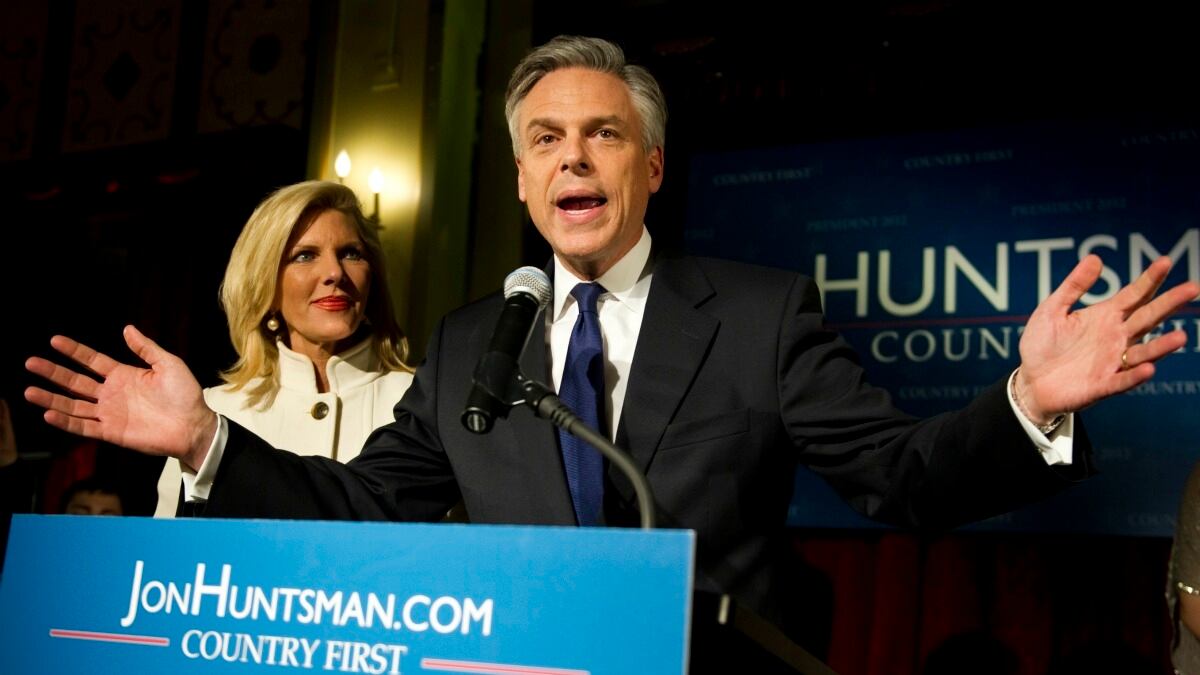
The Huntsman campaign was probably doomed before it started. Mitt Romney already securely occupied the political terrain Huntsman needed to take. For those Republicans looking for a practical, business-oriented, not highly ideological former governor—well, as the French knights say in Monty Python and the Holy Grail: “We’ve already got one.”
That duplicate Huntsman began with a huge early lead in connections, commitments, and campaign experience. Unless Romney badly stumbled, there was not going to be room for Huntsman—and Romney did not stumble.
Yet I think it’s also clear that Huntsman did not run the very best campaign he could have run. We all have our 2 cents as to what went wrong. Here’s mine.
Huntsman offered a critique of what has gone wrong in the modern Republican party: too anti-science, too socially conservative, too militarily interventionist, too hostile to expertise.
He did not however offer a unique selling proposition for his own candidacy. Even supposing a Republican primary voter agreed with every point in Huntsman’s critique (and surprisingly many do agree)—what then? Huntsman’s answer to the party’s problems was himself: smart, sophisticated, worldly, pragmatic. But every one of those characteristics is shared with Romney. What Huntsman did not offer was a programmatic alternative. On the contrary, the Huntsman program doubled down on Norquistism: big tax cuts, Ryan plan, etc.
This program created a contrast with Romney, but in the wrong direction: the least ideological Republican candidate now offered the most ideological economic platform. While Romney, the self-made multimillionaire, showed little regard for the economic travails of the bottom 80% of the American population, Huntsman, the son of a billionaire, showed even less.
It was left to Rick Santorum to speak to the economic anxieties of the middle class. Santorum’s ideas may be a messy and useless jumble, but they qualify as something in a field otherwise offering nothing. In a curious way, even Ron Paul is offering something: an explanation of how the economy fell into trouble and how it might recover. Paul’s explanation may be the economic equivalent of leeches and bleeding, but again: it’s something when others offer nothing.
I’m not suggesting that a more middle-class oriented platform would have saved the Huntsman campaign. As stated, the difficulties were inherent and inescapable. But at least such a platform would have provided a rationale for a campaign that otherwise threw too much weight on the candidate’s personality. That personality was attractive and impressive, but it was not enough. It never is.






